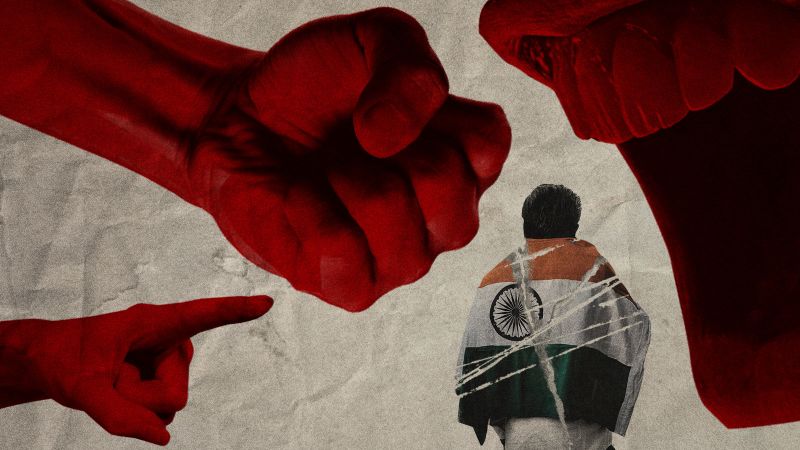Last month, FBI Director Kash Patel wished his followers on X a happy Diwali. It did not go over well.
Far-right Christian nationalist and white nationalist accounts flooded his post with bigoted memes and rhetoric. “Go back home and worship your sand demons,” a far-right pastor wrote. “Get the f**k out of my country,” read another reply. Said another, “This is America. We don’t do this.” These responses, some of which were seen millions of times, were on the tamer end of the spectrum.
Similar hostility followed Diwali greetings on X from former UN ambassador Nikki Haley, former presidential candidate Vivek Ramaswamy and Assistant Attorney General for Civil Rights Harmeet Dhillon, as well as posts about the holiday from the White House, the State Department, Texas Gov. Greg Abbott and Arkansas Gov. Sarah Huckabee Sanders.
Some Indian American conservatives seem shocked that segments of the political right are now taking aim at them.



Indian Hindus have had a caste system since it was introduced in the Vedas 3500 years ago. It was initially intended as means of organizing society and not necessarily hierarchical.
It wasn’t necessarily systemized until it was legally codified by the British during the colonial era. Indian historians have debated the fluidity of caste prior to this time and concluded that while caste endogamy was clearly the norm, caste was much more fluid historically.
There are thousands of castes in India. When the British came across this system, for the purposes of census administration, they limited self identification to only one of the four castes as described in the Vedas, legally codifying it as a hierarchy.
The idea of one group of people seeing itself as superior to others is a common theme throughout human history. The US had a race based caste system for most of its history with the addition of legally codified chattel slavery and segregation of African Americans.
Pulitzer prize winning author Isabel Wilkerson argues that America still has an invisible caste system to this day.
America utilizes DEI to remedy past and present caste discrimination. India outlawed caste discrimination at its inception in article 17 of it’s constitution.
Some regressive Indians bring a casteist worldview with them. The government of the United States and its supporters are currently working at establishing a caste system where those of European heritage are high caste and those of other races or heritages are low caste. Both are wrong.
I say this mainly because I come across many people that see caste as a uniquely regressive institution the likes of which has not existed in other societies. Every hierarchical system based on race or ancestry is casteist and essentially every human society in civilizational history has had and likely currently continues to have that bigotry deeply ingrained within.
Nothing you said is wrong. Just adding context for a better understanding.
Valid. Thanks for the clarification, it was really interesting, I appreciate the new knowledge.
Years ago, I had job selling timeshare in Florida, and I worked with a really handsome Indian guy, who always wore a really nice suit. We all hated getting Indian or Asian customers (even our Indian and Asian sales people) because they were notorious for never buying.
I asked the Indian guy about it, thinking he should have a better shot than most. He said:
“The way Indians are, there are a whole bunch of characteristics that have to be in common before they will trust me enough to buy. We could line up perfectly on almost all of them, but if even one thing is off, then they won’t buy from me. But YOU aren’t Indian, so they don’t have those expectations. They aren’t trying to line up their characteristics with yours, because they don’t expect them to match up. They probably still won’t buy from you, but overall, YOU’VE got a better shot at selling to Indians than I do as an Indian.”
And I did sell to a few Indians but all of them were unconventional. Two of them were Indian men married to white women, so clearly they didn’t care what their families thought of anything, and the third was so rich that he looked at the price and said “That’s all? I spend more than that on vacation on watches. Honey, you like this? Yeah? Okay, we’ll take it.”